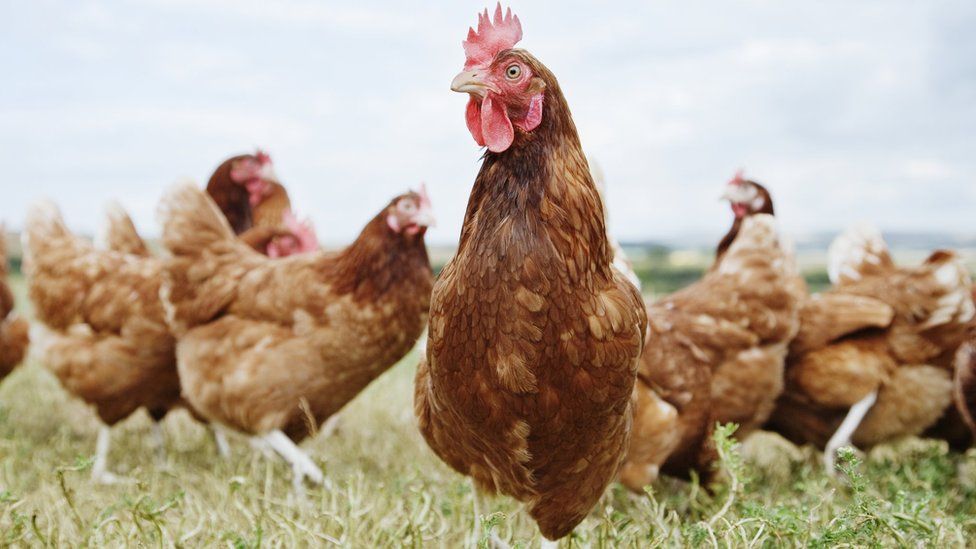ARTICLE AD BOX
 Image source, Getty Images
Image source, Getty Images
By James Gregory & Michelle Roberts
BBC News
Two poultry workers in England have tested positive for bird flu, although there are no signs of human-to-human transmission, the UK Health and Security Agency (UKHSA) has said.
Both people were known to have recently worked on an infected poultry farm and have since tested negative.
Neither worker experienced symptoms of avian influenza, with both cases found during screening.
The risk to the general population remains very low, the UKHSA added.
The UKHSA is running a programme of testing workers who have come into contact with infected birds, but is also running asymptomatic testing.
The first person who tested positive is thought to have inhaled the virus.
The second person is thought to be a more complicated case and it is unclear whether they have suffered a genuine infection or whether they too inhaled the virus while at work.
The UKHSA says precautionary contact tracing has been undertaken for this second individual.
Chief Medical Advisor at the UKHSA Professor Susan Hopkins said that globally there is "no evidence of spread of this strain from person to person, but we know that viruses evolve all the time and we remain vigilant for any evidence of changing risk to the population."
"It remains critical that people avoid touching sick or dead birds, and that they follow the DEFRA advice about reporting," she added.
There are five strains of avian influenza that have threatened human health in recent years - H7N9, H9N2, H5N6, H5N8 and a type of H5N1 strain more commonly found in Asia.
Although none of these strains easily infect people, and they are not usually spread from person to person, small numbers of people have been infected around the world, leading to a small number of deaths.
There have been very few cases of bird flu transmission to people recorded in the UK. The virus is not that well suited to humans and does not spread as easily as it does between birds.
It usually requires very close contact with an infected bird, which is why experts say the risk to humans is currently considered very low.
These latest cases do not change that assessment. There is no suggestion that the virus has changed to become infectious to us or spread from person to person.

 1 year ago
24
1 year ago
24








 English (US) ·
English (US) ·